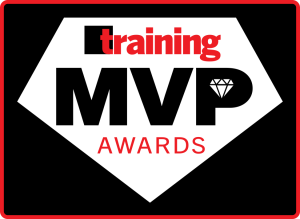ESL Federal Credit Union noted its number of formal customer complaints rising in 2023. It found that the complaints often were rooted in feedback received through the credit union’s Voice of the Customer (VOC) process. After a needs analysis, the Learning and Development (L&D) team determined that unit managers often acted to resolve the presenting issue rather than the underlying cause, which resulted in the problem resurfacing.
In response, L&D conceived a multi-pronged approach called Root Cause Analysis: A Critical Thinking Journey. Some 170 managers received training, comprising 18 percent of ESL’s total workforce.
Program Details
All managers first were assigned Critical Thinking for Managers. This curriculum laid the groundwork for all training to follow, which included multiple levels:
- Level 1 taught the critical thinking process. It empowered managers with a repeatable method for finding the best and most logical solution to any problem in the most efficient way. Managed in two phases through ESL’s learning management system (LMS), the course was a three-month learning expedition, replete with skills and strategies for real-world application. Through a sequence of controlled experiences, participants studied topics such as identifying reliable information, distinguishing between fact and opinion, and analyzing data. Phase one of the expedition comprised two modules: a self-paced, online course that taught the concepts, and an instructor-led workshop for guided skill practice. Phase two focused on reinforcement of concepts over time. Learners had to work through five online micro-lessons and achieve a score of 80 percent or better on associated exams.
- Level 2 taught the skill of root cause analysis, and challenged paricipants to leverage that skill to solve an actual problem in their own department. Coming back together for a one-day workshop, managers learned the Root Cause Analysis process: Realize the problem, gather relevant data, determine possible causal factors, identify the root cause, and recommend and implement solutions. Using actual VOC examples, they practiced using the 5 Whys process and the Fishbone diagram. The facilitator observed their work and cleared them for Level 3 of the curriculum.
- Level 3 allowed participants to apply their knowledge through individualized action learning projects addressing VOC concerns for their department. Using root cause analysis, they peeled back the layers to uncover what generated the concern. Then they applied critical thinking skills to identify the customer’s true concern, and build a new resolution accordingly. They met with the manager of Customer Experience to unpack their process and get approval on the proposed resolution.
This curriculum marks the first time actual business issues were identified and resolved as part of a formal learning experience at ESL. Upon completion of the program, each manager successfully resolved an actual VOC concern relative to their department and acquired the knowledge and skills to successfully resolve future VOC concerns before they escalate to the point of a complaint.
At 90 days post-completion, the LMS delivered drip lessons reviewing the topics of identifying reliable information and analyzing data. At 180 days, managers were assigned micro-lessons on gathering relevant data and determining potential causal factors.
For long-term reinforcement, self-paced modules were available to managers for review at any time. And quarterly walk-in workshops offered managers the opportunity to practice root cause analysis using a problem of their choosing.
Results
Five months after completion of the training, repeat VOC concerns dropped by 60 percent. Formal customer complaints tied to VOC escalations decreased by 90 percent over the same period. This has contributed to significant operational cost savings.





